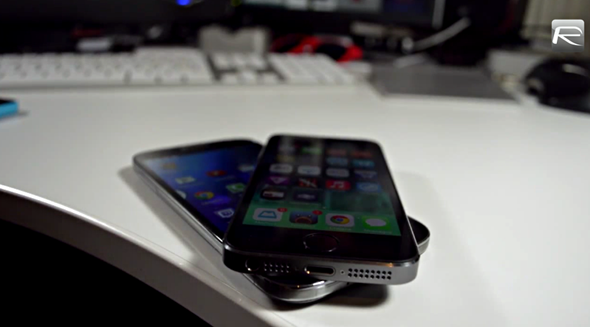The way we use our phones has been steadily changing for the past few years. Gone are the days where the sole, or even prominent feature of a phone, was the phone itself. Smartphones are now expected to have built-in Bluetooth, GPS, cameras and so much more. With all of this being said, the one thing that stands out from all the others is Internet access. We want, we need, more than anything for our mobile devices to have constant connectivity to our online activity. We want to be constantly updated with news, tips and anything else our like-minded friends may have shared with us online.
Mobile has shifted the way the Web is being built. For this reason, new releases into the smartphone space pose the question: are browsers and Internet speeds going to keep on improving? The most recent release of the iPhone 5s posed many questions around this topic, so we put the Galaxy S4, one of 2013’s hottest Android phones, to the test against the newest addition to Apple’s iPhone lineup of device, and put their Internet speed and browser capabilities to the test using the native web browser on each of these devices:
Subscribe to our YouTube channel for more videos.
After clearing the cache and cookies data on both the handsets, we performed a mixture of browser load tests, comparing how fast each phone loaded websites of varying content richness. Also in the video above, you’ll find a collection of browser benchmarks which indicate how well a device’s browser cope with certain important aspects of Internet such as HTML5 and JavaScript. The iPhone 5s absolutely tears through all of the benchmarks, making the Samsung Galaxy S4 look slightly like a phone that exists slightly behind the times.
But even though the Galaxy S4 lagged behind in the benchmarks (the HTML5 test was particularly shocking), it does well in real world usage tests. Whilst loading up a collection of websites, the S4 either slightly beat out the iPhone 5s, or was slightly behind in our test, as you can see in the video demonstration above.
We seem to have come to a block in how fast a smartphone can get – at least when you’re purely talking about Web-based performance – and I’m extremely excited to see what the next big thing will be.
You may also like to check out:
- iPhone 5S vs Galaxy S4 – The Full Comparison [VIDEO]
- iPhone 5s vs Galaxy S4 vs HTC One: Side By Side Hardware Comparison Of Flagships! [VIDEO]
You can follow us on Twitter, add us to your circle on Google+ or like our Facebook page to keep yourself updated on all the latest from Microsoft, Google, Apple and the web.

